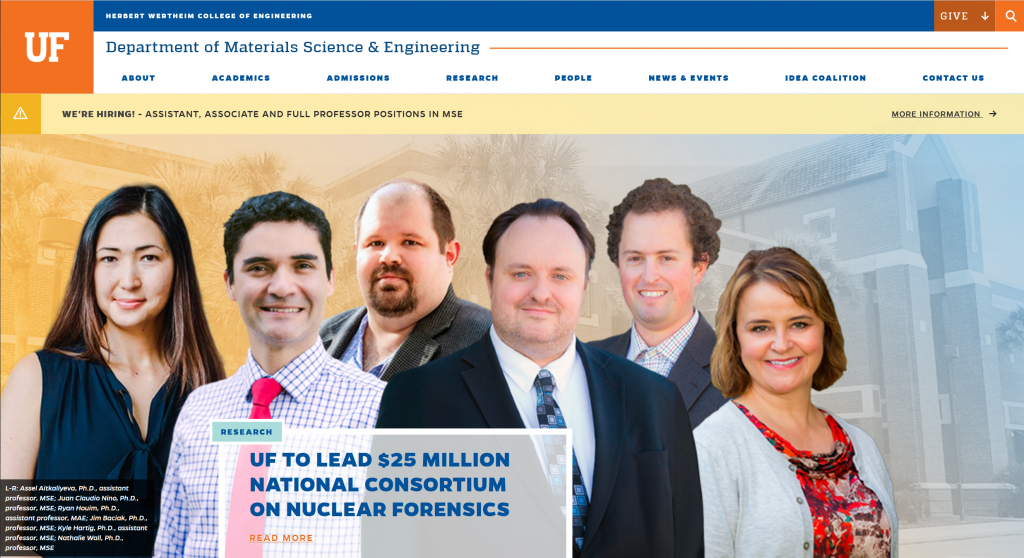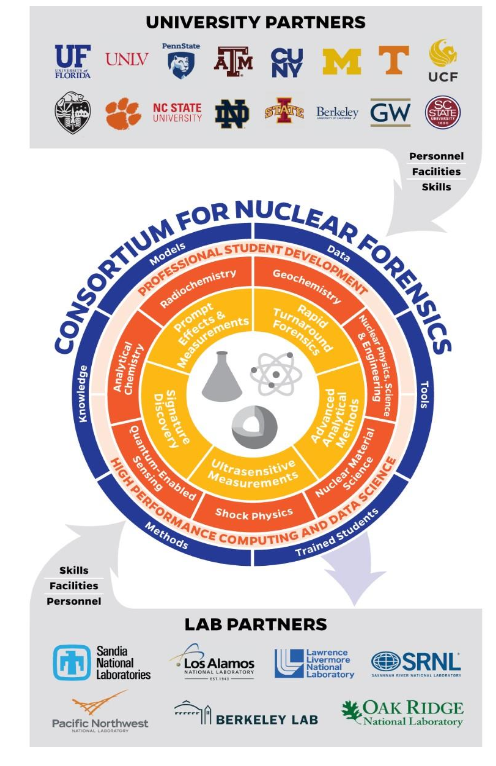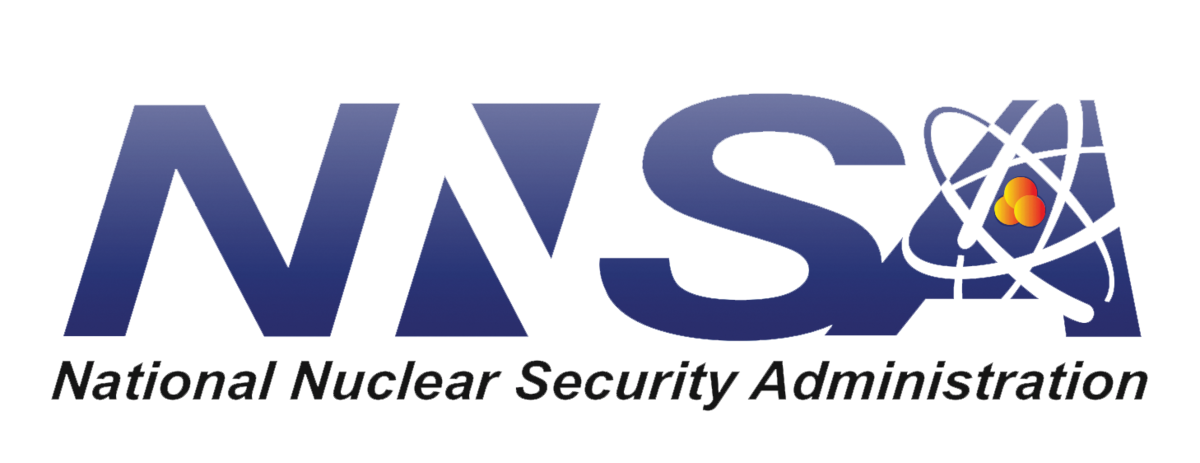The Nuclear Engineering Program at UF has been selected to lead the NNSA Nuclear Forensics Consortium. The 5 year, 25 million dollar program involves 16 Universities and ~30 Co-PIs lead by UF.
We will establish the Consortium for Nuclear Forensics (CNF), consisting of 16 universities (including 4 MSIs) and 7 National Laboratories (NLs), to provide the research, development, and human capital needed to create and develop new scientific discoveries, technologies, and capabilities in support of NNSA’s Defense Nuclear Nonproliferation Research and Development (DNN R&D) Office as related to nuclear forensics. The team will address the gaps and challenges within important research fields in nuclear forensics through five Thrust Areas (TAs): TA1-Rapid Turnaround Forensics, TA2-Advanced Analytical Methods, TA3- Ultrasensitive Measurements, TA4-Signature Discovery, and TA5-Prompt Effects and Measurements, taking advantage of our expertise in radiochemistry, geochemistry, analytical chemistry, nuclear physics, nuclear material science, shock physics, quantum-enabled sensing, high performance computing (HPC)/data science, and training/education. In addition to these TAs, CNF has a cross-cutting area (CCA) focused on HPC and Data Science, which will facilitate HPC and Artificial Intelligence (AI)-driven capabilities to accelerate solutions within individual TAs.
This effort was initiated by Prof. Kyle C. Hartig (UF) and Prof. Ken Czerwinski (UNLV) and will be lead by PI Prof. James Baciak (UF) and Deputy Director Prof. Camille Palmer (Oregon State).


